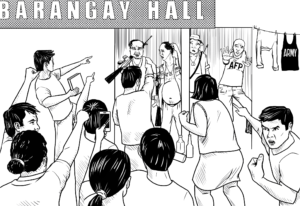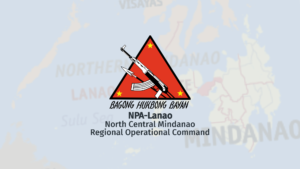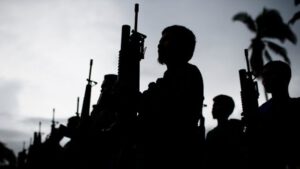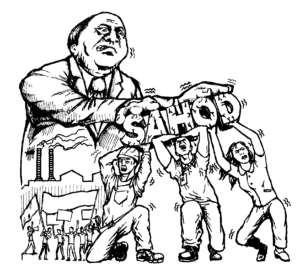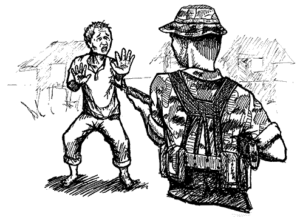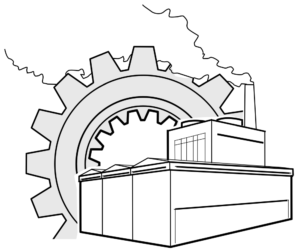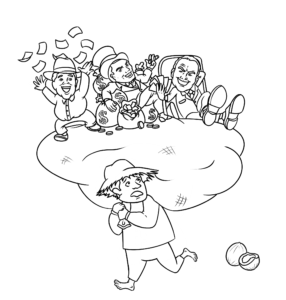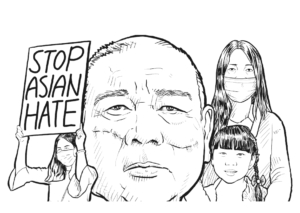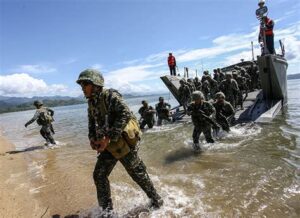IMF-World Bank, landgrabber and environmental plunderer


Progressive organizations went online last April 11 to protest the opening of the Spring Meeting of the International Monetary Fund-World Bank (IMF-WB). In this meeting, leaders of the IMF-WB and delegates discussed the issues of Covid-19, debt and climate change. As in the past, the IMF-WB claimed to be an “environmental champion” by announcing its plans to “forgive” the debt of poor countries in exchange for implementing “green investments.” In truth, these projects are only a continuation of the neoliberal agenda railroaded by the institution across the world. Such projects are being used to pave way for large-scale grabbing and use conversion of forests and farm lands to the detriment of the environment and the people who depend on these for their livelihood.
The IMF-WB utilizes both capital investments and loans to countries and corporations to facilitate land aquisition. According to a researh by International Development Association, IMF-WB directly funded at least 14 large land deals of various companies covering at least 900,000 hectares and provided securities financing to over 700,000 more in Africa, Latin America, South and South East Asia.
Worst of these concessions were funded by the International Finance Corporation (IFC), an agency of the WB which invests directly in private companies. Among the projects it funded was the bauxite mining operation of Compagnie des Bauxites de Guinée (CBG) in Papua New Guinea. The IFC loaned the company $200 million (₱9.6 billion at an exchange rate of $1=₱48) in 2016 for expansion of its operations which resulted in the eviction of 150,000 Guineans from their ancestral lands and the poisoning of a river which serves as residents primary source of drinking water. It funded a similar project in Myanmar which resulted in the eviction of 16,000 farmers and Karen minorities from 23 communities.
In over 30 countries, the IFC actively funds various landgrabbing concessions through its local intermediaries such as banks and and private equities.
In the Philippines, the WB is currently pushing for the implementation of the Support to Parcelization of Lands for Individual Titles, a program which will divide collective land titles to railroad land aquisition by foreign companies which target to establish “mega farms” or plantations in the country. The said program covers around 1.4 million hectares of agricultural land cultivated by around one million farmers. Last year, the country received a $370-million loan (₱17.8 billion) from the WB for the said program.
Anti-environment
The WB is making it appear that it allocates “climate funds” to supposedly protect the environment and combat climate change. However, it was exposed that around 70% of the programs that it funded are power generation projects including megadams and coal-powered power plants in 12 countries. These projects are notorious for forcibly evicting entire communities and destroying the environment
Data by World Bank in 2015 indicate that the Philippines received the biggest investments ($4.9 billion or ₱235.2 billion) for such projects, followed by South Africa, Chile and Malaysia. Across the globe, it allocated the highest funds ($1.2 billion or ₱57.6 billion) to the San Buenaventura Power Plant in Mauban, Quezon. Additionally, $937 million (₱45 billion) was allocated to the Therma Visayas Power Plant in Toledo City, Cebu. Both are coal-fired powerplants.
This March, the WB revised its climate policy to purportedly mitigate climate change. However, many criticized this as it has not included the commitment to stop funding power generation projects which utilize fossil fuel and coal.



